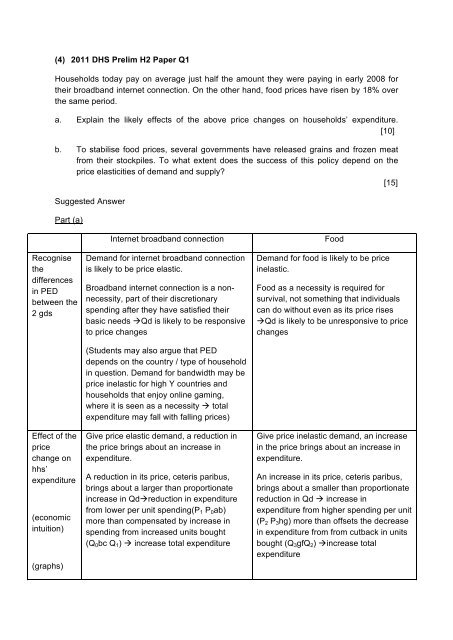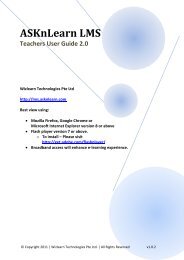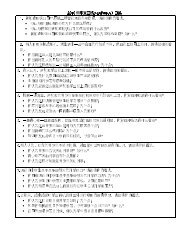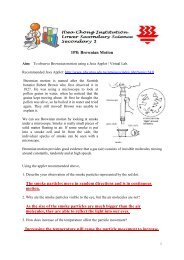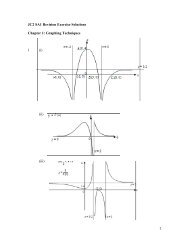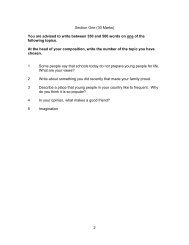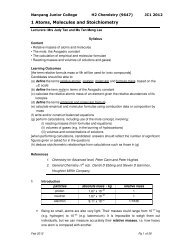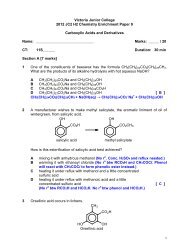Suggested Answers of BT2 Revision Package - ASKnLearn
Suggested Answers of BT2 Revision Package - ASKnLearn
Suggested Answers of BT2 Revision Package - ASKnLearn
- No tags were found...
Create successful ePaper yourself
Turn your PDF publications into a flip-book with our unique Google optimized e-Paper software.
(4) 2011 DHS Prelim H2 Paper Q1Households today pay on average just half the amount they were paying in early 2008 fortheir broadband internet connection. On the other hand, food prices have risen by 18% overthe same period.a. Explain the likely effects <strong>of</strong> the above price changes on households’ expenditure.[10]b. To stabilise food prices, several governments have released grains and frozen meatfrom their stockpiles. To what extent does the success <strong>of</strong> this policy depend on theprice elasticities <strong>of</strong> demand and supply?[15]<strong>Suggested</strong> AnswerPart (a)Recognisethedifferencesin PEDbetween the2 gdsEffect <strong>of</strong> thepricechange onhhs’expenditure(economicintuition)(graphs)Internet broadband connectionDemand for internet broadband connectionis likely to be price elastic.Broadband internet connection is a nonnecessity,part <strong>of</strong> their discretionaryspending after they have satisfied theirbasic needs àQd is likely to be responsiveto price changes(Students may also argue that PEDdepends on the country / type <strong>of</strong> householdin question. Demand for bandwidth may beprice inelastic for high Y countries andhouseholds that enjoy online gaming,where it is seen as a necessity à totalexpenditure may fall with falling prices)Give price elastic demand, a reduction inthe price brings about an increase inexpenditure.A reduction in its price, ceteris paribus,brings about a larger than proportionateincrease in Qdàreduction in expenditurefrom lower per unit spending(P 1 P 0 ab)more than compensated by increase inspending from increased units bought(Q 0 bc Q 1 ) à increase total expenditureFoodDemand for food is likely to be priceinelastic.Food as a necessity is required forsurvival, not something that individualscan do without even as its price risesàQd is likely to be unresponsive to pricechangesGive price inelastic demand, an increasein the price brings about an increase inexpenditure.An increase in its price, ceteris paribus,brings about a smaller than proportionatereduction in Qd à increase inexpenditure from higher spending per unit(P 2 P 3 hg) more than <strong>of</strong>fsets the decreasein expenditure from from cutback in unitsbought (Q 3 gfQ 2 ) àincrease totalexpenditure


